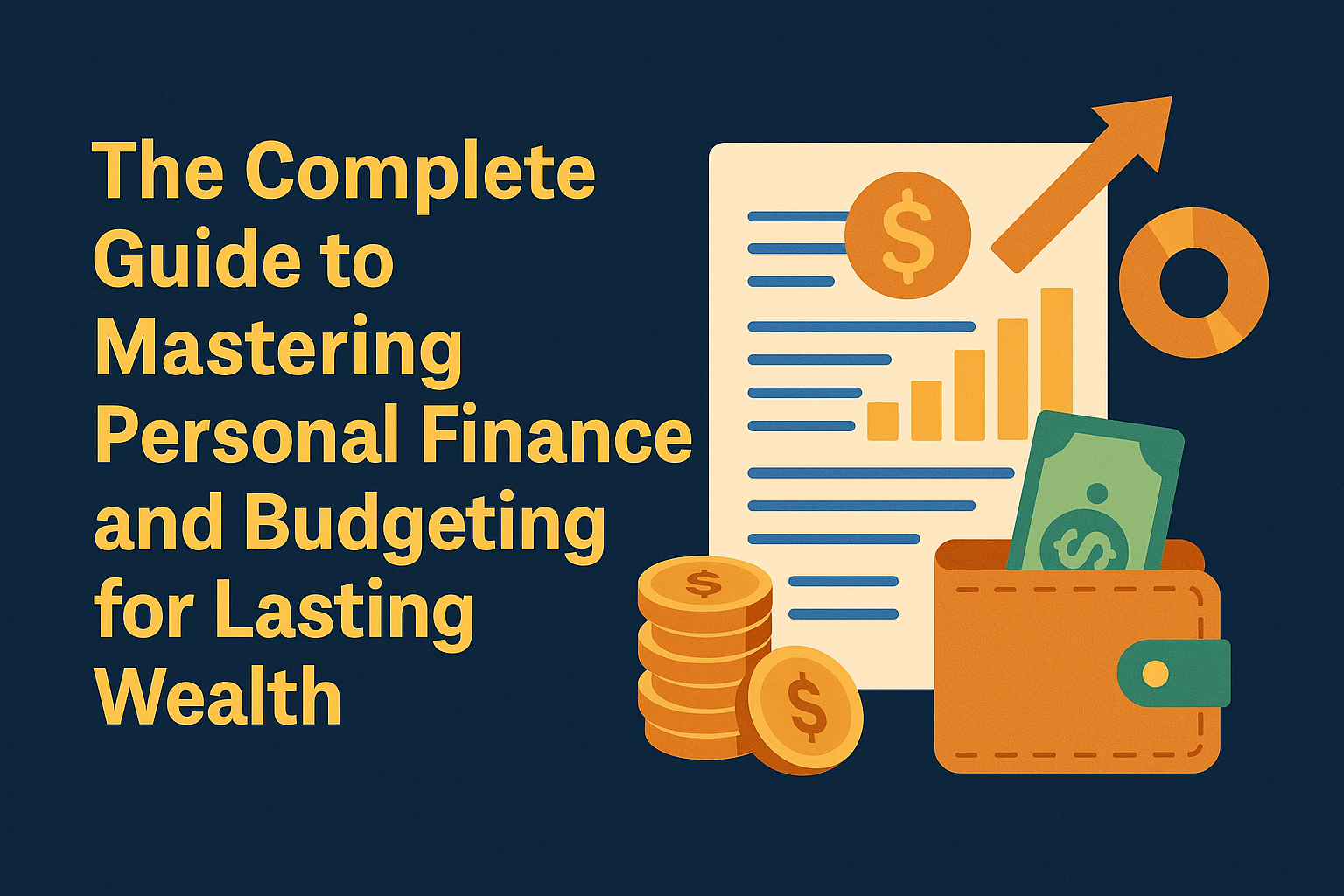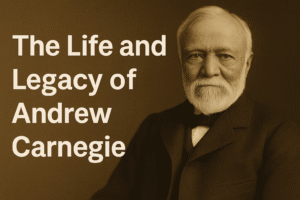Discover step-by-step strategies to master personal finance, build a budget that works, and grow wealth with confidence.
- Why Personal Finance Is the Foundation of Wealth and Peace of Mind
- The High Cost of Financial Confusion
- How Mindset Shapes Financial Success
- Understanding Your Cash Flow
- Creating a Budget That Reflects Your Values
- Automating Your Finances to Reduce Stress
- Building an Emergency Fund
- Destroying Debt for Good
- Building Credit to Open More Opportunities
- Creating Sinking Funds for Future Expenses
- The Power of Investing Early and Consistently
- Types of Investments
- Understanding Compound Interest
- Protecting Your Wealth with Insurance
- Budgeting as a Couple or Family
- Teaching Kids About Money
- Staying Motivated on Your Financial Journey
- Common Financial Mistakes and How to Avoid Them
- Case Study: Mark’s Transformation
- Frequently Asked Questions
- Your Next Steps
- Follow My Journey And Get Inspired To Transform Your Life For The Better
Why Personal Finance Is the Foundation of Wealth and Peace of Mind
Many people go through life feeling anxious about money.
You might earn a decent income, but if you don’t know how to manage it, wealth will always feel out of reach.
When you master personal finance and budgeting, you unlock:
✅ Freedom to pursue your passions
✅ Security to handle emergencies without panic
✅ Confidence to make smart decisions
✅ A clear path to financial independence
Whether you’re just starting out or looking to improve, this guide will show you exactly how to take control of your finances and create lasting wealth.
The High Cost of Financial Confusion
Ignoring your finances doesn’t just cause stress—it costs you real money.
Examples of Hidden Costs:
✅ Late fees from missed payments
✅ High interest on credit card debt
✅ Overdraft fees draining your bank account
✅ Lost investment gains by waiting too long to start
According to the National Financial Educators Council, in the US alone, poor money management costs individuals an average of $1,819 annually.
Every day you delay learning these skills, you leave money on the table.
How Mindset Shapes Financial Success
Before you download a budget app or invest in stocks, you must get your mindset right.
People who succeed with money share core beliefs:
✅ Money is a tool, not an enemy.
✅ My past mistakes don’t define my future.
✅ I am capable of learning and improving.
✅ Consistency beats perfection.
Reframe Limiting Beliefs:
❌ “I’m just bad with money.”
✅ “I’m learning to manage money more effectively.”
❌ “I’ll never get out of debt.”
✅ “I can create a plan to become debt-free.”
Your thoughts create your actions, and your actions create your financial reality.
Understanding Your Cash Flow
Cash flow is the movement of money in and out of your life. If you don’t track it, you can’t improve it.
Steps to Assess Cash Flow:
1️⃣ Calculate your total monthly income.
Include salary, side hustles, passive income, and any irregular earnings.
2️⃣ Track every expense for 30 days.
Use a notebook or an app like Mint or YNAB.
3️⃣ Categorize spending.
Examples:
- Housing
- Utilities
- Transportation
- Groceries
- Dining out
- Subscriptions
- Entertainment
4️⃣ Subtract total expenses from income.
✅ Positive cash flow means you’re living within your means.
❌ Negative cash flow signals you need to adjust spending.
Creating a Budget That Reflects Your Values
A budget isn’t punishment—it’s a plan for using your resources intentionally.
Popular Budgeting Methods:
✅ Zero-Based Budget:
Every dollar has a job. Income minus expenses equals zero.
Example:
- $4,000 income
- $2,500 expenses
- $1,000 savings
- $500 investments
✅ 50/30/20 Rule:
- 50% Needs
- 30% Wants
- 20% Savings and Debt Repayment
✅ Envelope System:
Cash allocated in envelopes for each category—once it’s gone, you stop spending.
Tip:
Pick a method you’ll stick to. Simplicity is key.
Automating Your Finances to Reduce Stress
Automation takes emotion out of the equation.
How to Automate:
✅ Schedule bill payments.
✅ Set up recurring transfers to savings.
✅ Auto-invest in retirement and brokerage accounts.
✅ Use alerts to track when you approach spending limits.
Automation ensures you prioritize saving and investing first, not last.
Building an Emergency Fund
Emergencies are not a matter of if—but when.
Why You Need One:
✅ Car repairs
✅ Medical bills
✅ Job loss
How Much to Save:
- Minimum: 1 month of expenses
- Recommended: 3–6 months
Where to Keep It:
A separate high-yield savings account—accessible but not too tempting.
Destroying Debt for Good
Debt is one of the biggest obstacles to wealth.
Types of Debt:
✅ Credit cards (highest priority to pay off)
✅ Student loans
✅ Auto loans
✅ Mortgages
Repayment Strategies:
✅ Debt Snowball:
- List debts smallest to largest.
- Pay minimums on all except the smallest.
- Focus extra money on the smallest until paid.
- Roll payments to the next debt.
✅ Debt Avalanche:
- List debts by interest rate, highest to lowest.
- Pay extra on the highest-interest debt first.
- Save more long term by reducing interest costs.
Tip:
Pick whichever method keeps you motivated.
Building Credit to Open More Opportunities
A strong credit score affects:
✅ Mortgage approvals
✅ Car loans
✅ Insurance rates
Tips to Improve Credit:
✅ Pay every bill on time.
✅ Keep utilization under 30%.
✅ Limit new credit applications.
✅ Check your credit report annually.
Fact:
35% of your score is payment history—never miss a payment.
Creating Sinking Funds for Future Expenses
Sinking funds are mini savings accounts for planned expenses.
Examples:
✅ Holiday gifts
✅ Car maintenance
✅ Vacations
How to Set Up:
- Estimate total needed.
- Divide by months until you’ll spend it.
- Save monthly into a dedicated fund.
The Power of Investing Early and Consistently
Investing grows your wealth far faster than saving alone.
Key Principles:
✅ Start now—time in the market matters most.
✅ Stay consistent—even small contributions grow.
✅ Keep costs low—avoid high-fee products.
✅ Diversify—spread your risk.
Types of Investments
Retirement Accounts:
✅ 401(k) with employer match
✅ Traditional or Roth IRA
Brokerage Accounts:
✅ Index funds (low-cost, diversified)
✅ ETFs
Real Estate:
✅ Rental properties
✅ REITs
Dividend Stocks:
✅ Provide regular income
Tip:
If unsure, consult a fiduciary financial advisor.
Understanding Compound Interest
Compound interest means your money earns money.
Example:
Invest $300/month for 30 years at 7%:
= Over $360,000.
Start today, even with small amounts.
Protecting Your Wealth with Insurance
Must-Have Policies:
✅ Health insurance
✅ Auto insurance
✅ Home/renter’s insurance
✅ Disability insurance
✅ Life insurance (if others rely on you)
Insurance safeguards all your progress.
Budgeting as a Couple or Family
Money can create tension if you’re not aligned.
Tips:
✅ Set shared goals.
✅ Schedule regular money check-ins.
✅ Agree on spending thresholds.
✅ Respect each person’s priorities.
Teaching Kids About Money
Lessons to Share:
✅ Earning through chores or part-time jobs
✅ Saving for goals
✅ Delayed gratification
✅ How credit works
Leading by example teaches lifelong habits.
Staying Motivated on Your Financial Journey
Ways to Stay Inspired:
✅ Track progress visually.
✅ Celebrate milestones.
✅ Read personal finance books and blogs.
✅ Join supportive communities.
Consistency matters more than perfection.
Common Financial Mistakes and How to Avoid Them
Mistake 1: Not Having a Budget
✅ Fix: Start simple—track income and expenses.
Mistake 2: Lifestyle Inflation
✅ Fix: Increase savings rate as income grows.
Mistake 3: Ignoring High-Interest Debt
✅ Fix: Prioritize repayment aggressively.
Mistake 4: Delaying Investing
✅ Fix: Automate monthly contributions.
Case Study: Mark’s Transformation
Mark earned $55,000 annually but lived paycheck to paycheck.
What He Did:
✅ Tracked expenses for 60 days.
✅ Cut dining out by 50%.
✅ Created sinking funds for car repairs.
✅ Paid off $10,000 in credit cards in 18 months.
✅ Started investing 15% of income.
Today, Mark has a six-month emergency fund and growing investments.
Frequently Asked Questions
Q: What’s the first step if I feel overwhelmed?
Start by tracking expenses for 30 days. Awareness is the foundation.
Q: Should I pay off debt or invest first?
Pay high-interest debt first, then split funds between debt and investing.
Q: What tools can help me budget?
✅ Mint
✅ YNAB (You Need a Budget)
✅ EveryDollar
✅ Spreadsheets
Q: Do I need a high income to build wealth?
No—consistent saving and investing matter more than income alone.
Your Next Steps
Mastering personal finance empowers you to create freedom, security, and lasting wealth.
✅ Track where your money goes.
✅ Create a budget that fits your life.
✅ Build an emergency fund.
✅ Destroy debt.
✅ Invest early and consistently.
✅ Keep learning and stay committed.
Every small step adds up to massive change over time.
Learn What I’m Using To Build Online Passive Income Streams By Clicking Here
I do not provide personal investment or financial advice and I am not a qualified licensed investment advisor. I am documenting my online investment and financial journey and what’s working for me. Click Here to read disclaimer.
Follow My Journey And Get Inspired To Transform Your Life For The Better
“I may earn commissions as an affiliate from sponsored links within this post”





